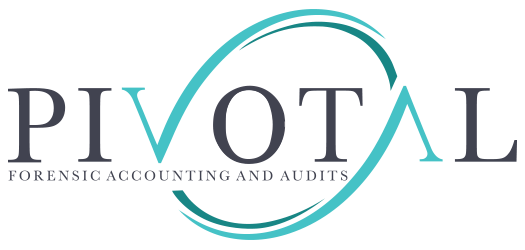What is Embezzlement?
Embezzlement is a form of financial fraud where a person, usually entrusted with the management of assets or finances, illegally takes or withholds these assets for personal use. It is a white-collar crime that often involves intricate schemes to hide the misappropriation of funds over a prolonged period. Embezzlement can occur in various settings, including corporations, non-profit organizations, churches, schools, and even government agencies.
How Embezzlement Occurs
Embezzlement typically involves individuals in positions of trust who exploit their access to financial resources. Common examples include:
- Employee Theft: An employee with access to company funds or inventory diverts them for personal use.
- Payroll Fraud: A payroll manager might create fake employees or inflate salaries, diverting the excess to their account.
- Vendor Fraud: Collusion between an employee and an external vendor to overbill the company, with the employee receiving a kickback.
- Expense Reimbursement Fraud: An employee submits inflated or fictitious expense claims and pockets the difference.
- Skimming: Directly taking cash before it is recorded in the accounting system.
Signs of Embezzlement
Identifying embezzlement can be challenging due to the subtle and concealed nature of the crime. However, some warning signs include:
- Unexplained Discrepancies: Gaps between reported and actual financial figures, such as missing inventory, unbalanced accounts, or unexplained bank withdrawals.
- Lifestyle Discrepancies: An employee suddenly living beyond their means, such as buying luxury items or going on expensive vacations without a commensurate income increase.
- Overworked Employees: An employee insisting on handling all financial matters alone or refusing to take vacations, possibly to avoid detection.
- Delayed Financial Reporting: Regular delays in submitting financial statements or other reports, which could indicate attempts to conceal fraud.
Legal Implications
Embezzlement is a serious crime with significant legal consequences. Those found guilty can face both civil and criminal penalties, including hefty fines, restitution, and imprisonment. Additionally, the damage to a business’s reputation can be long-lasting, particularly in cases involving non-profit organizations, schools, or religious institutions, where trust is paramount.
The Role of a Forensic Accountant in Embezzlement Investigations
Forensic accountants play a crucial role in uncovering and addressing embezzlement. Their expertise in financial analysis, auditing, and investigation enables them to detect irregularities that may indicate fraudulent activity. When an organization suspects embezzlement, a forensic accountant can:
- Conduct a Thorough Investigation: They examine financial records, transactions, and documents to identify discrepancies or patterns that suggest misappropriation.
- Trace the Flow of Funds: Forensic accountants can follow the money trail, identifying how funds were diverted and where they ended up.
- Provide Expert Testimony: In legal proceedings, forensic accountants can serve as expert witnesses, presenting their findings in a clear, concise manner that is understandable to judges and juries.
- Help Recover Assets: They work to identify and recover misappropriated funds, potentially helping the organization regain what was lost.
For organizations such as corporations, non-profits, churches, schools, and more, partnering with a forensic accountant is an essential step in addressing embezzlement. We not only help in uncovering the truth but also provide guidance on strengthening internal controls to prevent future occurrences, thereby protecting the organization’s financial health and integrity.


